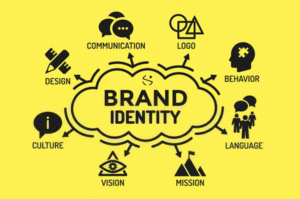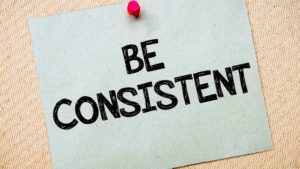In today’s hyper-connected digital world, build a personal brand as a founder is not just an option—it’s a necessity. A strong personal brand establishes your credibility, connects you with your audience, attracts investors, builds trust with clients, and creates influence in your industry. Whether you’re launching a startup or scaling a business, the way people perceive you significantly impacts your company’s growth. In this guide, we’ll explore effective strategies on how to build a compelling personal brand as a founder.
1. Define Your Brand Identity

Your personal brand starts with clarity. You need to identify who you are, what you stand for, and what you want to be known for.
Key Questions to Ask:
- What is my mission as a founder?
- What values do I represent?
- What unique skills or perspectives do I bring?
- Who is my target audience?
Tip: Craft a personal brand statement that summarizes your vision and values in a single sentence. Example: “I help early-stage startups turn ideas into scalable digital products.”
2. Tell Your Story Authentically

Your journey matters. People connect with stories more than products or services to build personal brand. Sharing your ups, downs, lessons, and breakthroughs makes your brand relatable.
Ways to Share Your Story:
- Write blogs about your startup journey
- Share personal reflections on LinkedIn or Twitter
- Record podcast interviews or video content
Why it works: Authentic storytelling fosters emotional connection and builds trust.
3. Create Valuable Content

Content is the engine of your personal brand. By creating insightful, useful, or inspiring content, you position yourself as an expert in your domain.
Types of Content to Create:
- Thought leadership articles
- Industry insights or trends
- Behind-the-scenes of your startup life
- Tips and how-to guides for entrepreneurs
- Live Q&A sessions or webinars
Platforms to Use:
- LinkedIn (ideal for professional insights)
- Medium or Substack (for blogging)
- Instagram and YouTube (for visual storytelling)
- Twitter (for real-time thoughts and networking)
4. Be Consistent Across Platforms

Consistency builds recognition to build personal brand. Your profile photo, bio, tone of voice, and messaging should align across all platforms where you’re active.
Key Elements to Align:
- Username and profile name
- Visual branding (colors, logo, typography)
- Content themes (entrepreneurship, innovation, leadership, etc.)
- Posting frequency and style
Tip: Use tools like Canva to maintain a consistent visual identity.
5. Engage with Your Audience

Building a personal brand is a two-way street. Engagement deepens connections and increases your visibility.
How to Engage Effectively:
- Respond to comments and messages
- Ask questions to encourage discussion
- Collaborate with other founders or influencers
- Join relevant communities or forums (like Indie Hackers or Reddit)
Why it matters: The more genuine value you provide, the more your audience will advocate for you.
6. Network Strategically

Your network is your net worth. To Build personal brand and relationships with mentors, peers, and thought leaders can amplify your personal brand.
Networking Tips:
- Attend industry conferences or startup meetups
- Connect with other founders on LinkedIn
- Offer help before asking for it
- Follow up after meetings or online conversations
Bonus Tip: Share stories from your networking experiences online to multiply their impact.
7. Leverage Media and PR

Getting featured in publications, podcasts, or YouTube channels builds social proof.
Ways to Get Media Exposure:
- Pitch your founder story to business blogs
- Reach out to journalists or content creators
- Submit guest articles to popular platforms
- Collaborate with micro-influencers in your space
Tip: Focus on offering value to the publication’s audience rather than promoting yourself.
8. Monitor Your Brand Reputation
![]()
If you build personal brand it should evolve but stay credible. Track what people are saying about you and adapt accordingly.
How to Monitor:
- Google Alerts for your name
- Social media mentions and DMs
- Reviews and feedback from customers or peers
Why it’s Important: Being proactive helps you manage perception and improve continuously.
9. Keep Learning and Evolving

A personal brand is not static—it should grow with you. Stay informed, keep building skills, and share your learnings.
Ideas for Growth:
- Take online courses or certifications
- Read business and leadership books
- Experiment with new content formats (Reels, newsletters, etc.)
- Reflect regularly on your journey
Conclusion
Building a personal brand as a founder is one of the smartest long-term investments you can make. It not only amplifies your startup’s visibility but also opens doors to partnerships, talent, funding, and trust. Start by defining your identity, telling your story, and providing real value—consistently and authentically. Remember, people buy into people before they buy into products. Your brand is your legacy—build it wisely.